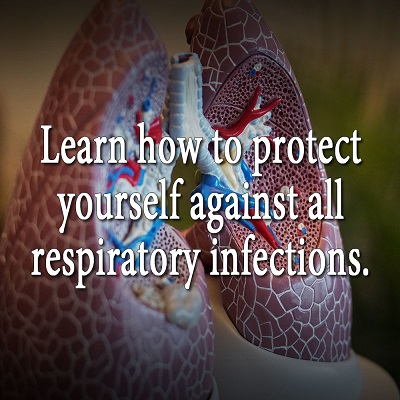 The global pandemic COVID-19 has certainly put a spotlight on our respiratory health. However, viral respiratory infections are not new at all. Nearly every single one of us has experienced a form of these infections, given that there are at least 200 strains of viruses that we can encounter in our lifetime. Nobody is spared from the risk of viral respiratory infections. From babies to our grandmas, everyone is susceptible.
The global pandemic COVID-19 has certainly put a spotlight on our respiratory health. However, viral respiratory infections are not new at all. Nearly every single one of us has experienced a form of these infections, given that there are at least 200 strains of viruses that we can encounter in our lifetime. Nobody is spared from the risk of viral respiratory infections. From babies to our grandmas, everyone is susceptible.
Cause of Viral Infections
Viral respiratory infections are caused by virus strains that can affect lung function and lead to respiratory illnesses such as colds. A person becomes infected through inhaling droplets expelled by another infected person through coughing or sneezing, which is called direct contact.
Another possible way to be infected is through indirect contact, or when you touch objects that have the infected droplets on them. If you touch them and then touch your face, you can accidentally inhale those infected droplets. Common respiratory viruses include influenza virus, respiratory syncytial virus, parainfluenza virus, adenovirus, and the most common of them all, rhinovirus, which is more popularly called the common cold.
Symptoms
The incubation period for the virus will depend on the strain, but it is common to develop symptoms anywhere from 1-10 days from the initial exposure to the virus. In the case of COVID-19, the maximum incubation period is believed to be 14 days.
Most symptoms of viral respiratory infections are mild and subside on their own after a few days. Symptoms include fever, cough, sneezing, runny nose, and sore throat. Viral infections can also cause headaches, muscle aches, and generally feeling unwell, or body malaise.
Most people suffer from mild symptoms and improve only after a few sick days. However, the very young and the very old, as well as people whose immune systems are compromised, are more at risk of suffering severe or even extreme complications from viral infections, as their immune systems are weaker.
People from these vulnerable groups can develop life-threatening conditions such as pneumonia, croup, meningitis, and encephalitis when the viral infection worsens. Younger children are more prone to viral respiratory infections since they haven’t developed antibodies for several of these viral strains.
Treatments
There are no specific treatments for mild symptoms. Patients are advised to rest for a few days and up their fluid intake to loosen mucus and relieve nasal congestion. Antibiotics are not beneficial for viral infections, but patients may take paracetamol for headache and fever. For severe cases, antiviral drugs may be taken as prescribed by the doctor.
When To See a Doctor
Since most viral infections are mild, a few sick days should help you get back on your feet and will also help ensure that you don’t get to spread the virus to others. But in some cases, viral infections warrant a trip to the doctor for advice, especially if the patient’s condition becomes worse.
Shortness of breath, difficulty in finishing a sentence, feeling very weak, confusion, and dehydration, are signs that the patient should go to the hospital or a doctor immediately.
Prevention
The good news about viral infections, in general, is that the prevention and cure are largely in our hands, literally. To prevent getting sick and infecting others, regular and proper handwashing is important. Wash your hands with soap and water for at least twenty seconds to ensure that any virus is washed off completely.
Train yourself to not touch your face; most people touch their face habitually far too often. Avoid sharing your personal belongings such as cups and utensils and make sure to wash these properly.
Regularly disinfect items that you often touch with your hands, such as doorknobs, remote controls, and your cellphone. Finally, boost your immune system by taking vitamin C supplements and consuming foods that are rich in vitamin C such as citrus fruits.
The human race has been fighting off viral infections for many thousands of years. Over time, we have developed antibodies and vaccines to help us fight off these infections. Similarly, we have also developed habits and know-how that can assist us in avoiding getting infected.
As COVID-19 has affected the respiratory health of many people, there has been an urgency to try to control the spread of this deadly virus. Eventually, scientists will hopefully be able to develop a vaccine that can prevent the spread of these types of viruses. However, in the meantime, be prepared and learn how to protect yourself.






